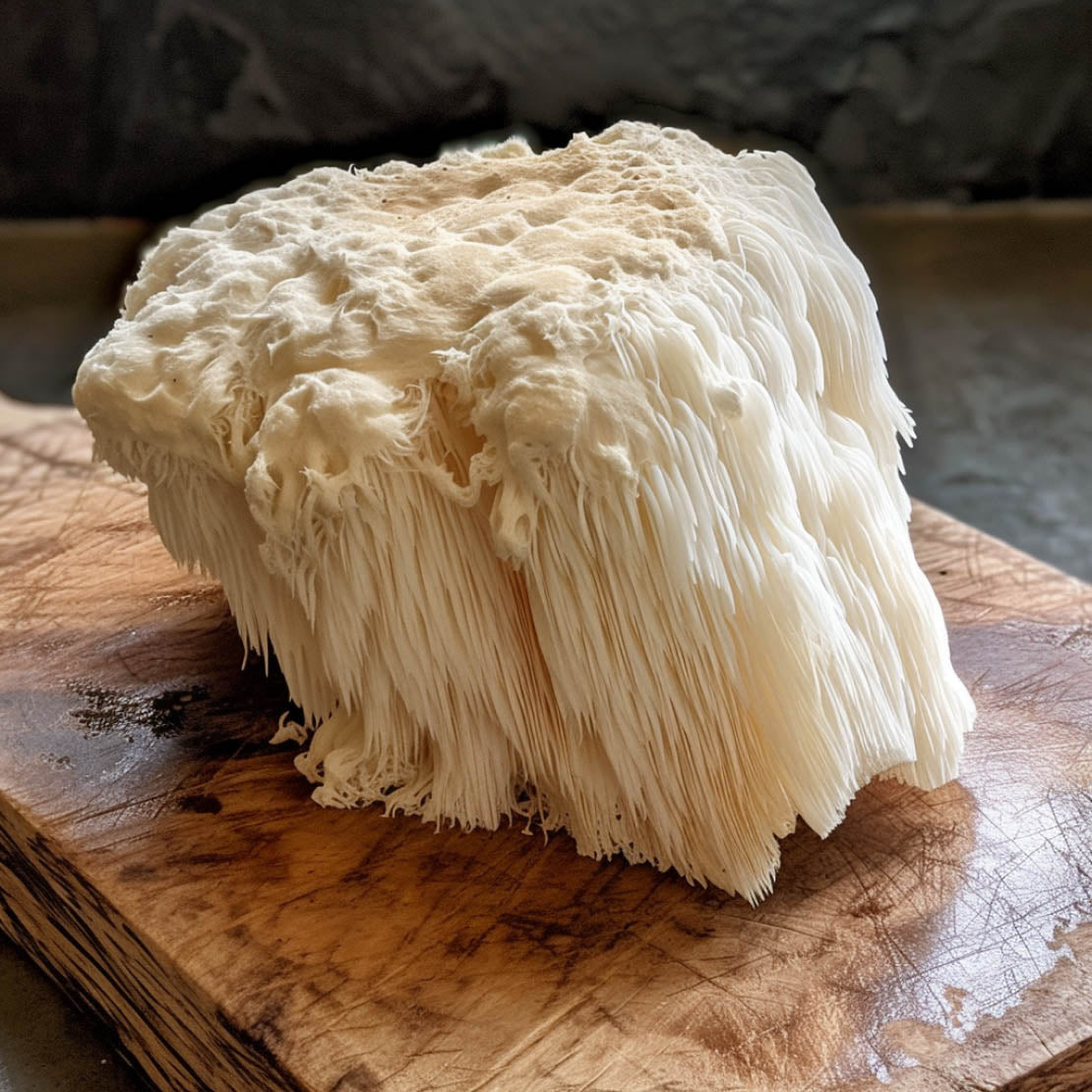The Science Behind Lion's Mane Mushroom's Effects on the Brain
Posted on March 07 2024,
In the realm of natural remedies, few substances have garnered as much attention for their potential cognitive benefits as Lion's Mane Mushroom. This intriguing fungus, known for its distinctive appearance resembling a lion's mane, has been revered for centuries in traditional medicine and is now gaining recognition in scientific circles for its profound impact on brain health. Join us as we delve into the scientific nuances that underpin the fascinating effects of Lion's Mane Mushroom on the brain.
Unlocking the Neurological Potential:
At the heart of Lion's Mane's brain-boosting prowess lies a group of compounds known as hericenones and erinacines. These bioactive substances have demonstrated remarkable abilities to stimulate the production of nerve growth factor (NGF) in the brain. NGF is a protein crucial for the growth, maintenance, and survival of neurons, making it a key player in cognitive function.

Enhancing Neuroplasticity:
Neuroplasticity, the brain's ability to adapt and reorganize itself, is essential for learning and memory. Lion's Mane Mushroom has shown promise in promoting neuroplasticity by influencing the release of certain compounds that support synaptic growth and connectivity between neurons. This phenomenon has significant implications for cognitive processes, including memory formation and learning.
Cognitive Clarity and Mental Acuity:
Studies suggest that Lion's Mane Mushroom may contribute to improved cognitive function, including enhanced memory and increased focus. The potential benefits extend to protecting against age-related cognitive decline, making it a subject of interest for researchers exploring natural interventions for conditions like Alzheimer's disease and dementia.
Balancing Neurotransmitters:
Lion's Mane has also been linked to the modulation of neurotransmitters, the chemical messengers that facilitate communication between neurons. By influencing the levels of neurotransmitters such as dopamine and serotonin, Lion's Mane may contribute to a more balanced mood and reduced feelings of stress and anxiety.
Navigating the Future of Brain Health:
As research into Lion's Mane Mushroom continues to unfold, the scientific community is beginning to appreciate the full scope of its neurological effects. From its potential to support cognitive function to its role in neuroprotection, Lion's Mane stands at the forefront of natural compounds offering promising benefits for brain health.
In conclusion, while Lion's Mane Mushroom's effects on the brain are a subject of ongoing research, the existing scientific evidence suggests a compelling story of neurological support. As we eagerly await further studies, incorporating this fascinating fungus into our wellness routines may hold the key to unlocking cognitive vitality and promoting long-term brain health. Join us on this journey into the science behind Lion's Mane Mushroom and discover the potential it holds for your cognitive well-being.


